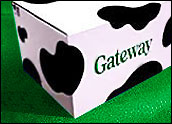
Anti-spam software provider Mailshell and bulk e-mailer Lyris may not be a likely duo, but the two companies are working together to boost the validity of spam filtering and at the same time allow delivery of messages that might not be considered spam by some recipients.
Their solution — which allows users to evaluate e-mail senders based on their history and habits — is designed to be an alternative to the more commonly used systems of bond requirements and blacklisting (blocking delivery of e-mail messages from senders deemed to be spammers).
However, the plan has met criticism from some who see the Mailshell-Lyris partnership as less than savory.
“If I were in the business, I wouldn’t send out a news release about how I’m going to start sending out better spam,” Basex President and Chief Analyst Jonathan Spira told the E-Commerce Times. “That’s what this says to me. To have e-mail marketers in bed with anti-spam companies is a questionable practice.”
Positive Message
Nevertheless, Lyris Vice President of Product Development Robb Wilson told TechNewsWorld that today’s practices of e-mail filtering, blacklisting and whitelisting have not worked, because they result in the blocking of legitimate marketing messages that receivers have elected to receive.
“The average user doesn’t equate spam to opt-in,” Wilson said, adding that even when users do opt-in for e-mail messages from Lyris clients and others, the legitimate communications get filtered or blocked right along with the deluge of spam e-mail.
Wilson stressed that it is not necessary to adopt the bond model or expend the effort to learn whitelisting — which involves registering and clearing bulk e-mailers, often at a price. Instead, the Mailshell-Lyris approach is based on reputation-building and giving e-mailers credit for good behavior.
“That can go in favor of you,” he said. “You earn your reputation by acting responsibly. In the long run, it’s the most genuine and real way to evaluate reputation, and it’s the only way an ISP can truly trust any reputation.”
Increasing Validity
The concept of using positive behavior also helps Mailshell cut down on false positives, which peg legitimate e-mail senders as spammers.
Mailshell Vice President of Products and Marketing, Eytan Urbas, told the E-Commerce Times the idea behind partnering with Lyris is to use reputation — a hot buzzword in the industry right now — to verify, quantify and put statistical data to sender reputation.
“There is an assertion in the industry that senders and receivers are in an adversarial positions,” he said. “We reject that. We also don’t believe to increase deliverability, you need to put up a bond or essentially pay.”
The inclusion of Lyris clients in Mailshell’s reputation methodology “can only improve the quality of our overall analysis,” Urban added.
“Our customers respond to these moves by seeing how the accuracy of our filters improves,” he said.
“We’re trying to have a third party say these people deserve a fair look,” Urban continued. “Just because they’re sending in bulk doesn’t mean they’re bad. It doesn’t mean they’re good, but they should get a fair look. That’s the spirit of what we’re trying to do.”
E-Marketing Trouble?
Reputation is a very good way of predicting whether a sender is likely to send spam, Spira said, conceding that “one man’s spam is another man’s LL Bean catalog.”
The delivery rate will increase for companies deemed legitimate senders, he noted, and the reputation system may curb phishing attacks.
Still, Spira reiterated his objections to the partnership between Mailshell, an anti-spam provider, and Lyris, an e-mail marketer.
E-mail marketers are hurting from the fight against spam, he said, and “this sends the message that e-mail marketing providers are in desperate straits.”












































Social Media
See all Social Media